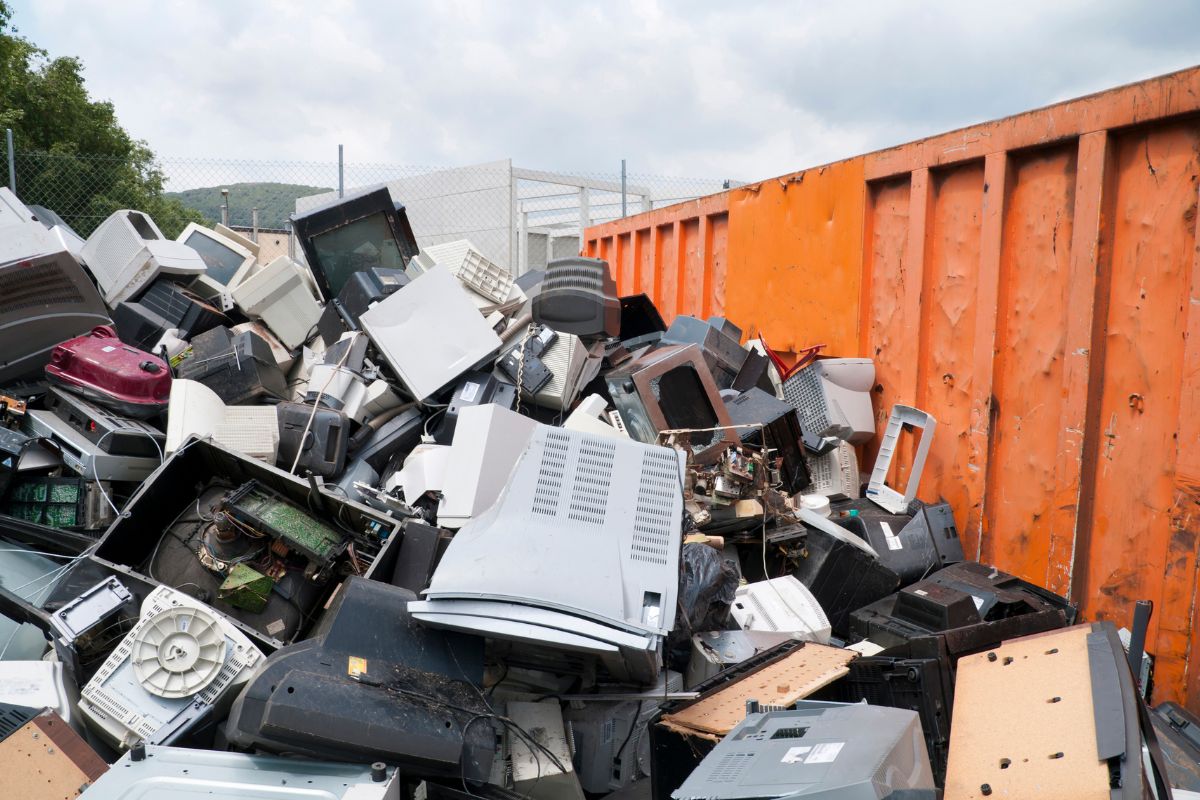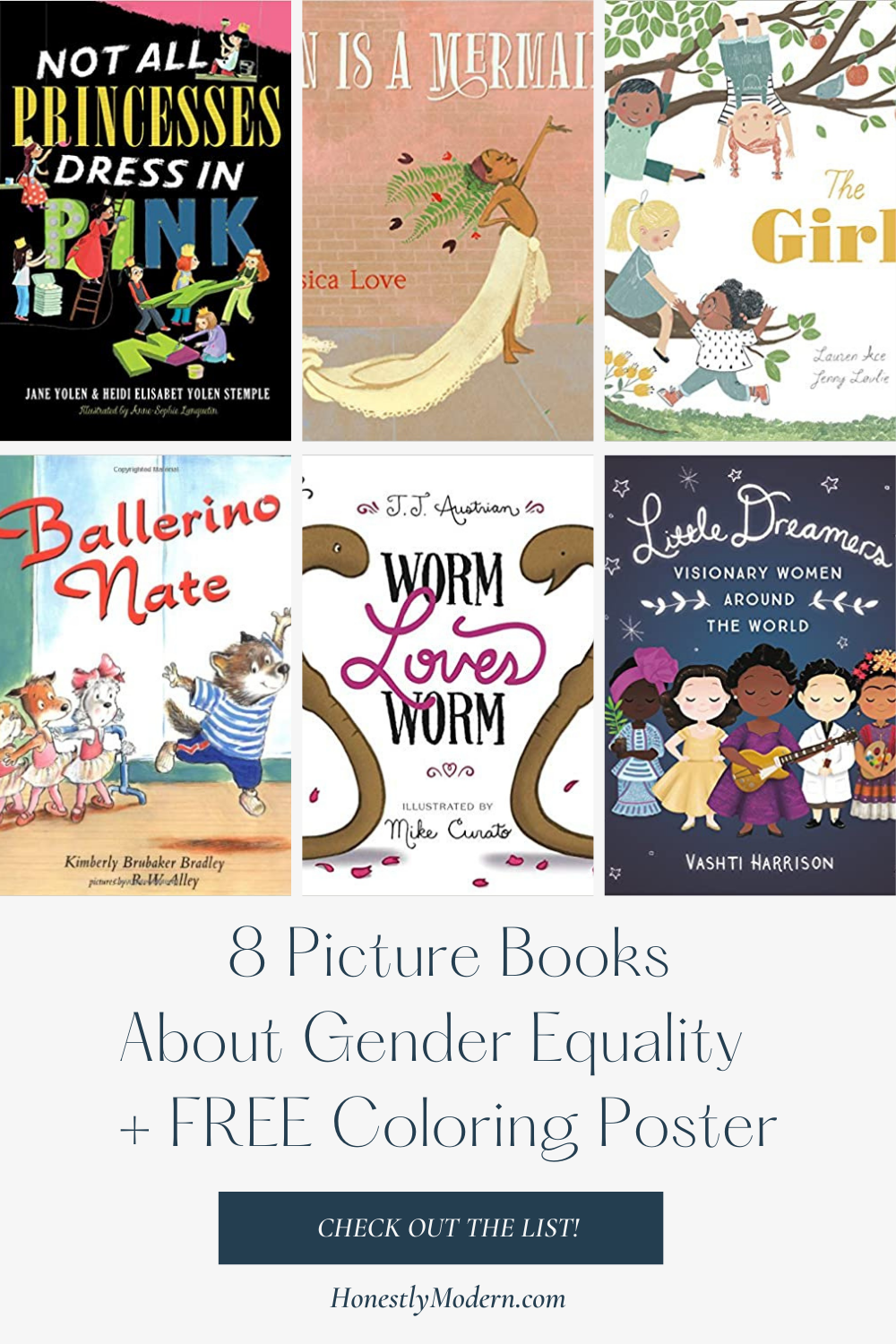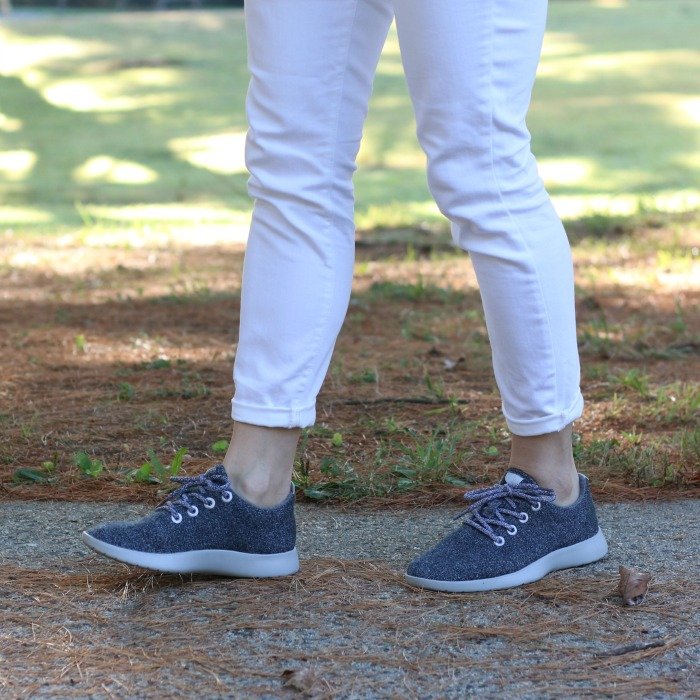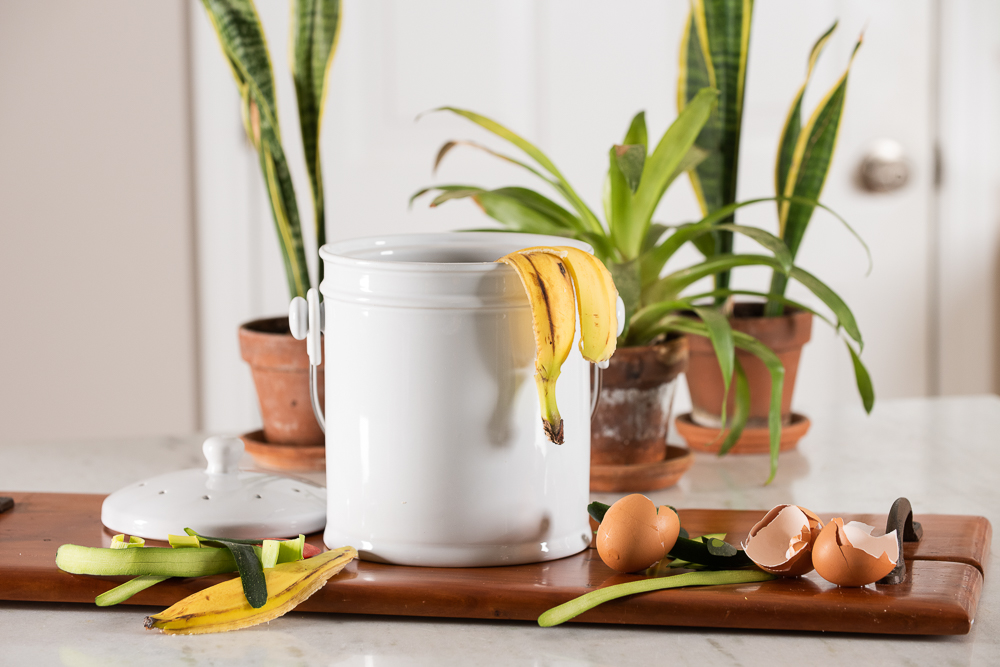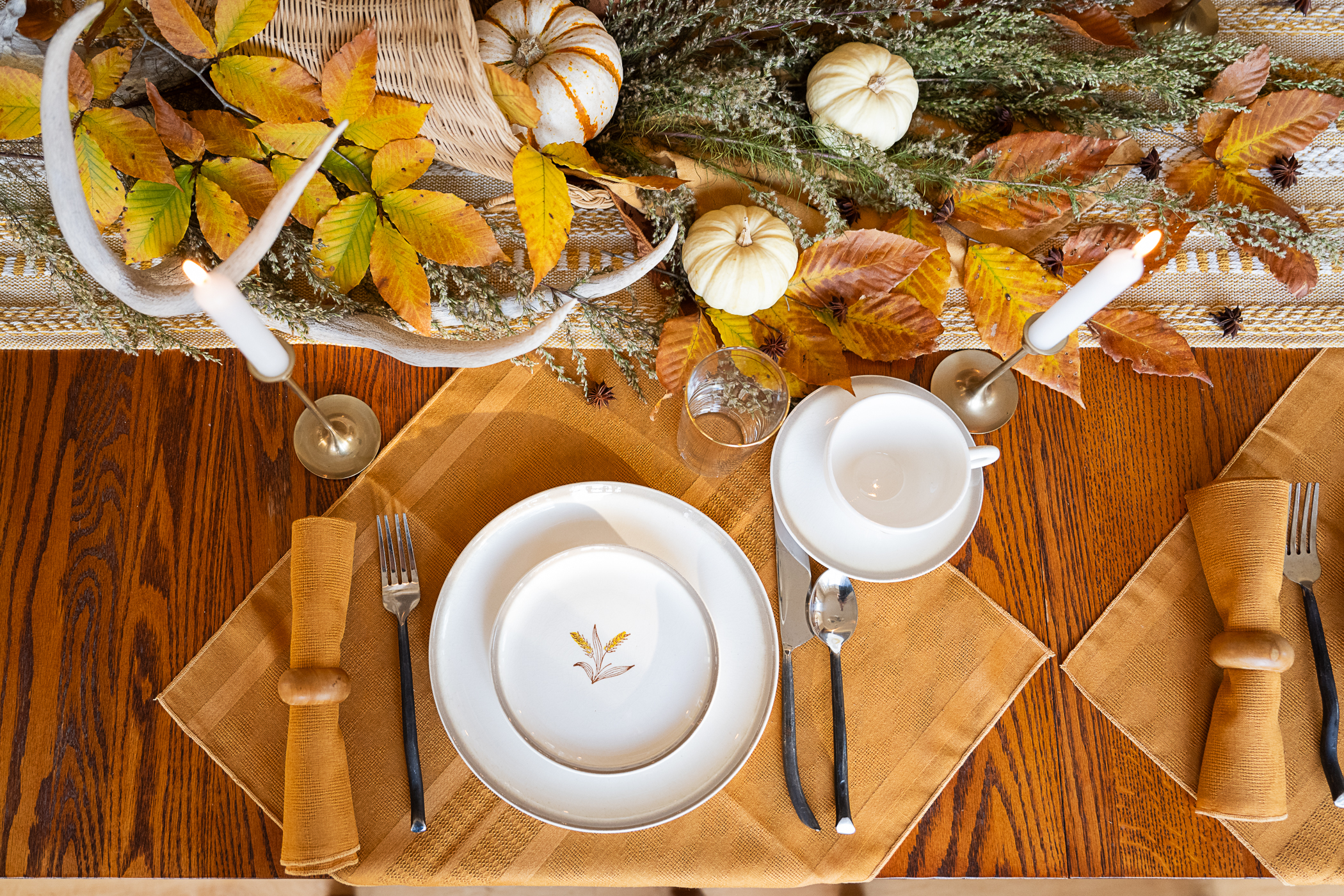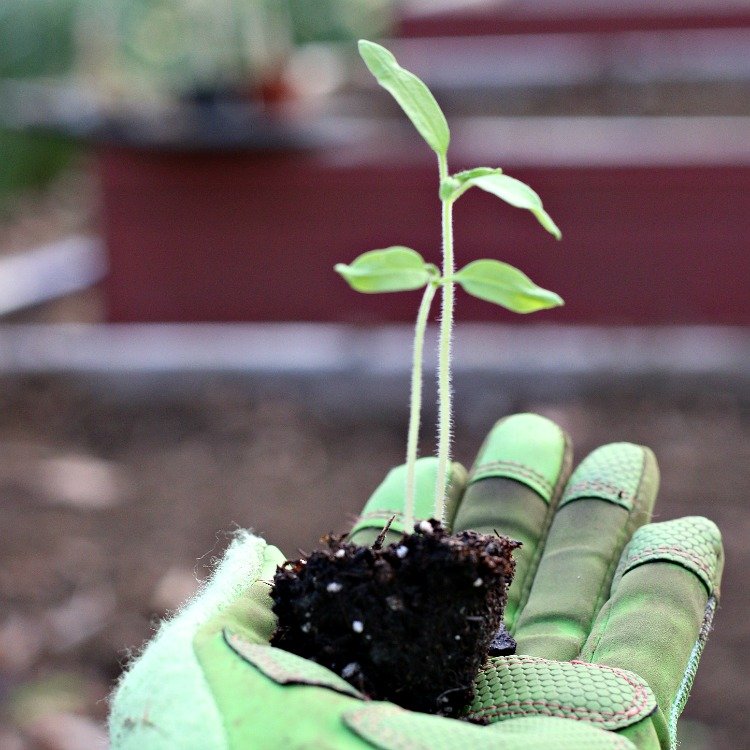Sustainability Side Hustle | Q+A with Eco Inspired
As a part of our Sustainability Side Hustle series, we are interviewing people passionate about our planet and who have explored their own skills and talents to share with their community. As our planet continues to suffer under human-caused climate change, pollution, and overall environmental degradation, we hope more people find pleasure and financial fortitude in a sustainability side hustle or small business.
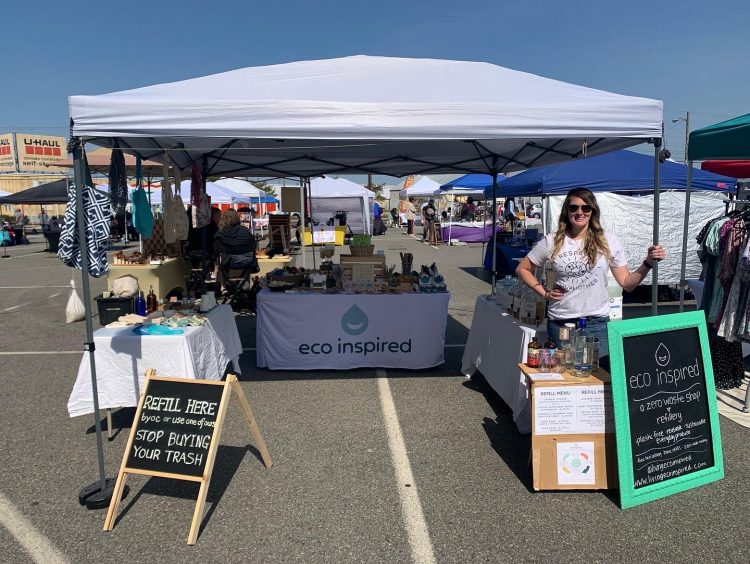
Eryn is the founder of Eco Inspired, a zero waste refill pop-up shop based out of Richmond, Virginia, that offers everyday sustainable alternatives and refill items to help you live a more eco-conscious life. She makes sustainable living convenient, accessible, and affordable creating a positive environmental impact.
Why did you start a zero-waste refill pop-up shop?
I began contemplating starting a zero-waste pop-up shop about eight years ago when I reflected on my own personal waste and how I could reduce it.
At the time, I found a great local co-op where I could bring my own containers and refill them with coffee, beans, rice, and other food products. This helped me reduce my food packaging waste. I signed up for a home composting service to reduce my food waste.
Reducing my waste to help the environment was extremely important to me. I actually haven’t owned a trash can in eight years (something that threw my partner when he moved in) because I created that little waste.
For a while, I bought zero waste items for my mom and shared my zero waste methods with friends and family, but there wasn’t a one-stop shop for all your zero waste needs, so that’s really what sparked my idea.
Fast forward to the pandemic, and I was working 70 hours a week at home in a job that provided no fulfillment or enjoyment. To keep me going, I started to build a plan to open a zero-waste shop in Richmond, Virginia, where I grew up.
Around this time, my partner got a promotion for his job that required quite a bit of travel. We were living in Chicago, and this change provided an opportunity to really shake up our situation for the better. In May of 2021, I quit my job, we moved back to Richmond, and I started Eco Inspired.
Still in the midst of the pandemic, it didn’t make sense to open a brick-and-mortar store amid all the Covid regulations, so a pop-up and online shop made sense.
How did you start the business?
I did a lot of research on how to start a business in Virginia. My background was in athletics compliance, so I had no idea where to start. I utilized my local small business resources and a mentor to give me a list of everything I needed (licenses, insurance, etc.) to legally get started. Then I tackled each of the items on the list and eventually, the business was born.
How did you fund Eco Inspired?
I received a material payout from my job in Chicago, and I used that to fund start-up expenses. I’m very fortunate I was able to start Eco Inspired without taking out a loan.
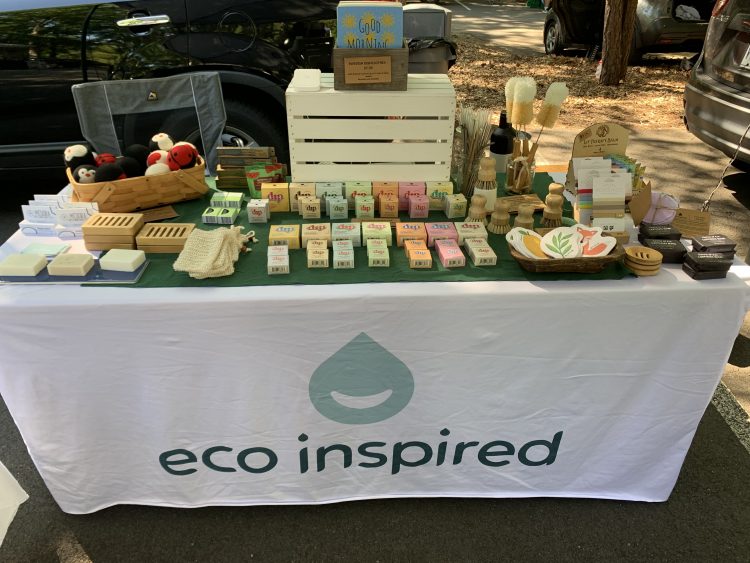
How do you market Eco Inspired?
My biggest marketing successes come from customer interaction and word of mouth. As a society, we have become accustomed to big box stores for everything. All of our products are purposefully selected and offered to customers because they are not in these types of stores and have a positive environmental impact.
I use traditional marketing tactics to help drive sales (newsletters, social media posts). But vending at pop-up events and farmers’ markets and getting in front of people are my bread and butter for spreading the word about the business.
Conversations with customers
Many people that come to my booth know what a “zero waste shop” is and are looking to further their low waste journey. However, I also have many conversations educating people about why reducing our waste is so important and how individually, we can help make a difference.
Face-to-face interactions with people who are hesitant about transitioning to zero-waste alternatives give them a hands-on experience to explore the products. It also affords me the opportunity to a little bit of convincing that making sustainable swaps to live a more eco-conscious lifestyle is acheivable.
Pop-up shops and farmers’ markets
Doing pop-ups in different locations around Richmond helps me spread the word a ton. I love when shoppers walk by with puzzled looks on their faces looking at the refill section. After explaining my business, I’m pumped when they pick up one of our free jars and ask me to help them fill it. It can get quite messy if you take your eye off things!
If I only had a brick-and-mortar store, I would lose out on the customers I’ve gained that stumbled across my booth at a pop-up or farmers’ markets. To make up for a lack of physical space and only doing pop-ups and farmers’ markets, I offer free local delivery and home refilling.
Local media coverage
Last fall, I scored a spot on the local news and got to share the story and mission of Eco Inspired. This generated quite a bit of business for me! In fact, that weekend, I attended an event about 30 miles north of Richmond. A woman come to my booth saying she saw me on the news and was so excited to see the shop that she made the drive from Richmond. I was almost in tears and asked if I could hug her.
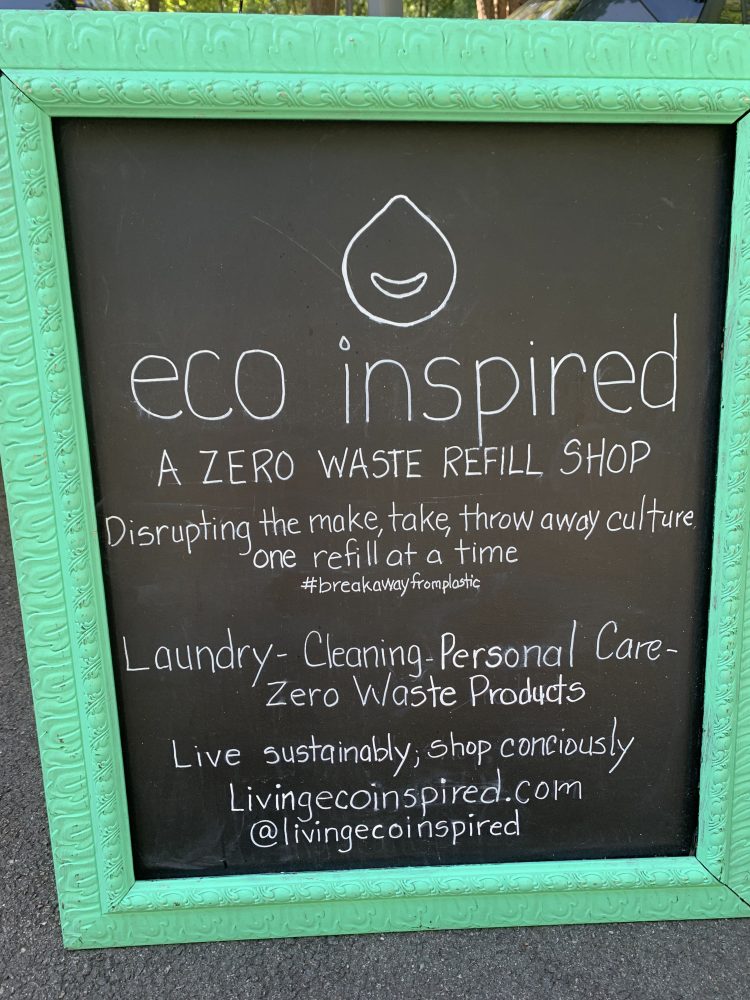
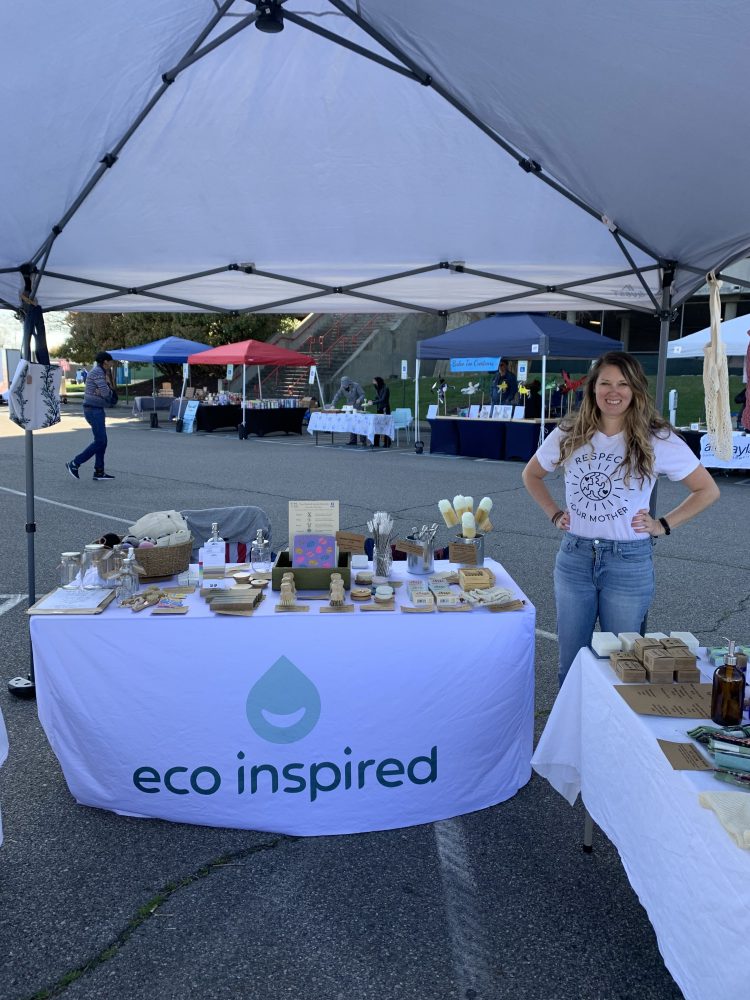
What does the behind-the-scenes of the pop-up refill shop look like?
I keep my whole shop in my home office. It’s on the second floor, so packing and unpacking is a two-step process. Before every market, I pack up my products and refill items, take everything downstairs, then pack it all in my car.
I found a great non-profit organization in Richmond that sells items secondhand, so my containers are all secondhand tubs and wooden crates. It’s a lot, but my parents and partner help me out, so the task of setting up isn’t so daunting.
I also offer free home refilling (and delivery). Customers place their order online, select how many ounces of a refill product they need, and I refill right outside their homes.
I let the customer know when I’ll be at their house and ask them to leave their containers outside for me to refill. I fill them up and leave them back on their porch. I’m like the milkman of old but for your everyday, household products. To fulfill those orders, I pack my scale and product(s), head to their home, grab the container, and re-fill right in the back of my car.
How did Eco Inspired go from a full-time job to a side hustle?
When I quit my job in Chicago in May of 2021, I planned to work on Eco Inspired full time through December and then reassess. My partner and I are trying to buy a home, so having two incomes rather than one was something we needed. When I found my current job, I knew that I could balance both the business and fulfill my job requirements, so I started working full-time again. I most certainly have two full-time jobs.
My passion is Eco Inspired, and the ultimate goal is to continue to grow the business and turn it into a profitable business where I can take a salary, thus turning it back into my full-time job. I have a partner who is so supportive. He wants me to focus on the business full-time. I’m hoping this will happen sooner than later.
How do you have the time and energy to do both jobs?
A lot of planning, coffee, and wine. Ha. I honestly am very tired most of the time, but planning out my social media posts and newsletters for the week is really important.
My mom is helpful. She delivers orders during the week and runs errands for the business when I’m at work. I can’t say I do it all alone as she is a huge help. Also, my partner is finally back in Richmond after working remotely in Chicago for 3 months, so he does a lot of the setup and deliveries for me too as he has a very flexible schedule. I would need to hire someone if I didn’t have their help.
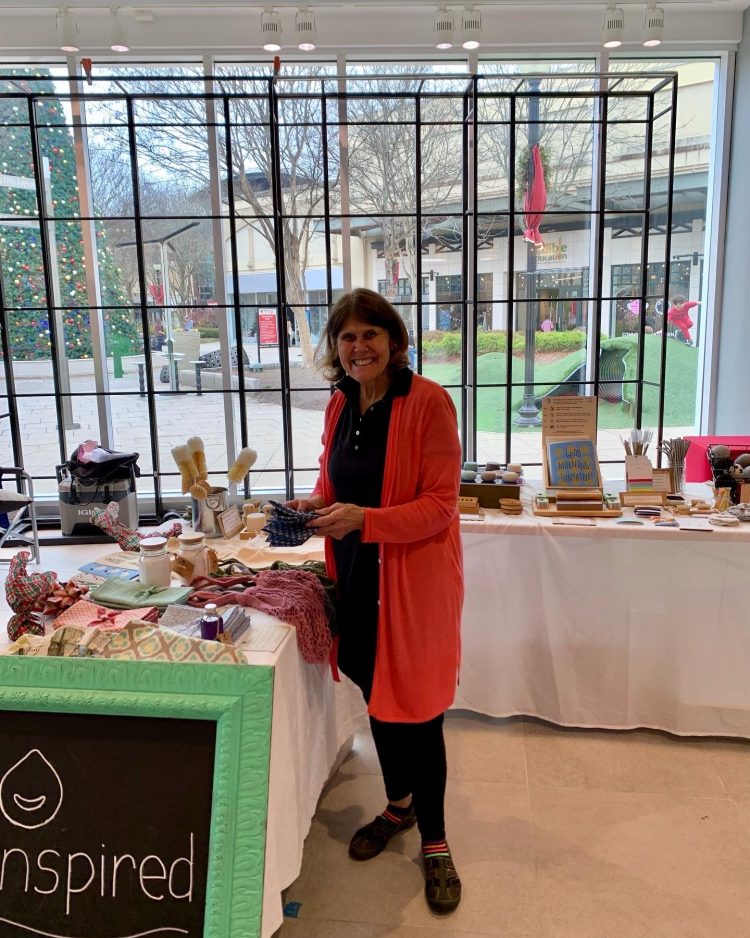
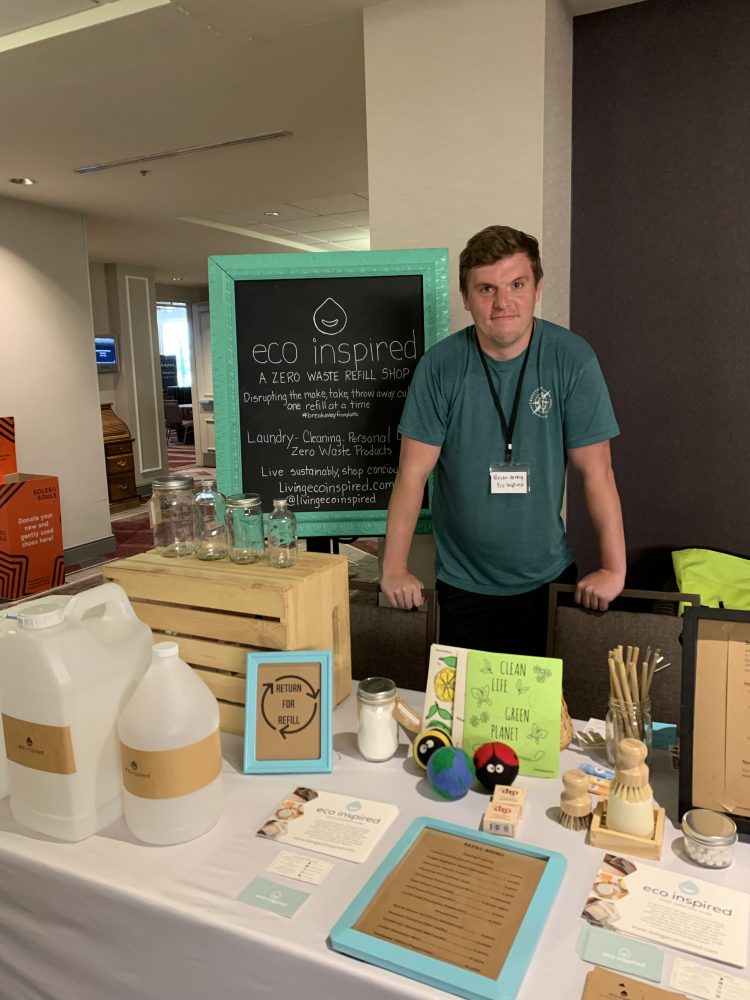
Who or what has been your greatest resource in the sustainability community to continue educating yourself and your customers?
Judith Enck is amazing. She is the President of Beyond Plastics, an organization whose mission is to educate and promote change to end plastic pollution. I heard about and followed the Beyond Plastics organization when it started in 2019. A family friend (thanks Ellen!) worked with her at the Environmental Protection Agency under President Obama, shared her contact information with me, and we set up a time to chat.
When I spoke with Judith, she encouraged me to take her Beyond Plastics Class at Bennington College. The class is open to anyone. I took the class this past semester and learned so much about how and why plastics were created, their environmental impact, and how to be a promoter of change in your community.
Successfully owning and running Eco Inspired is not my end goal. I want to be a catalyst for reducing and ending plastic pollution in the Greater Richmond, Virginia area.
When going against the grain when it comes to single-use vs reuse, how do you communicate the value and worth of the items you sell?
I think cost and longevity resonate with most people. Some of my products cost more upfront but last much longer than standard alternatives. Zero waste products last 7-8 months while traditional big box store alternatives last closer to three months. It makes financial sense to make the upfront investment if you have the funds available.
I always test out products before putting them in the shop, so I can give customers a range of how long they lasted for me. This helps answer customer questions and provide comfort around the investment they’re making in the products I sell.
The reality is that the products we sell can be less or more expensive per unit than most comparable products in single-use containers. Our products all come from small businesses that focus on sustainable practices instead of massive factories (that use cheaper ingredients) pumping out conventional items found in most single-use containers.
In these cases, the cost may be slightly higher. That’s not all the refill items though. Many save money in the long run so it can somewhat even out. To keep people coming back for refills we’re almost ready to roll out our loyalty program to help offset some of the cost.
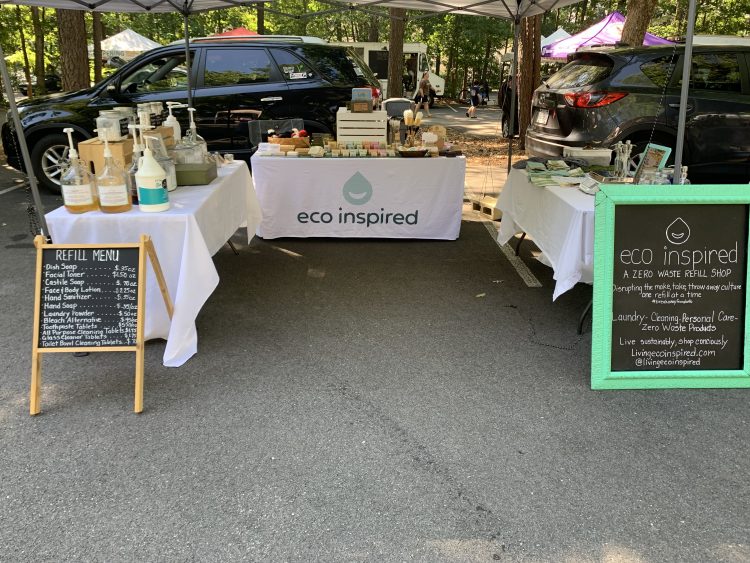
What are your thoughts on the commentary that sustainable items/swaps/refills are only for those who have the budget to live a “sustainable” life?
We live in a society where most people can find the cheapest items everywhere. For a family struggling financially, I can understand the habit of buying the option that is least expensive upfront and readily available at large retail stores.
However, I do think you can live a sustainable life on a budget. Taking off my businesswoman hat for a second, I always tell people to use what they have first. Have an old towel? Cut it up and use it to wash dishes or use it for cleaning items instead of paper towels. I love it when people tell me that they do these kinds of things and save so much money. Making the most of what we already have and reusing everything is a practice as old as time and one we’ve only lost recently.
Putting my businesswoman hat back on regarding the cost of items I sell, many of the products have multiple uses or can last nearly forever. Customers incur one-time costs and reap savings after the initial purchase.
In our refill section, you can purchase everything by the ounce. If you’re on a tight budget for the week, you can get only what you need for a shorter period of time that works within your budget.
Most sustainable businesses aren’t seen as the default solution to a problem; they are seen as an added expense to living a “sustainable lifestyle”. Have you experienced this in your business? If so, how do you respond?
I haven’t experienced it since I started Eco Inspired, to be honest. Reducing consumption is a large part of living a more sustainable lifestyle, so the idea that sustainable living has to be more expensive doesn’t quite add up when viewed through this lens. Sustainable businesses like mine offer products that replace your everyday products at similar or lower cost with alternatives that aren’t environmentally harmful. Through our pop-up shops and delivery service, we are accessible to many communities.
There may be some misconception that sustainable living starts with an overhaul of what you already have which makes it cost prohibitive for some people. However, I tell others to use what they have first, and then buy “less but better” when they need refills or replacements. Then there is no added expense.
I think for those who view sustainable businesses as consistently more expensive to a person’s overall purchasing habits, it’s time to re-evaluate what a “sustainable lifestyle” means to them.
Do you have any plans to turn Eco Inspired into a brick-and-mortar shop?
My ultimate goal is to have a brick-and-mortar shop for Eco Inspired. I also want to have a mobile filling station and will continue to do pop-ups. Through the pop-up shop, I have met so many wonderful people that have turned into repeat (and repeat and repeat) customers, so I will never stop doing those.
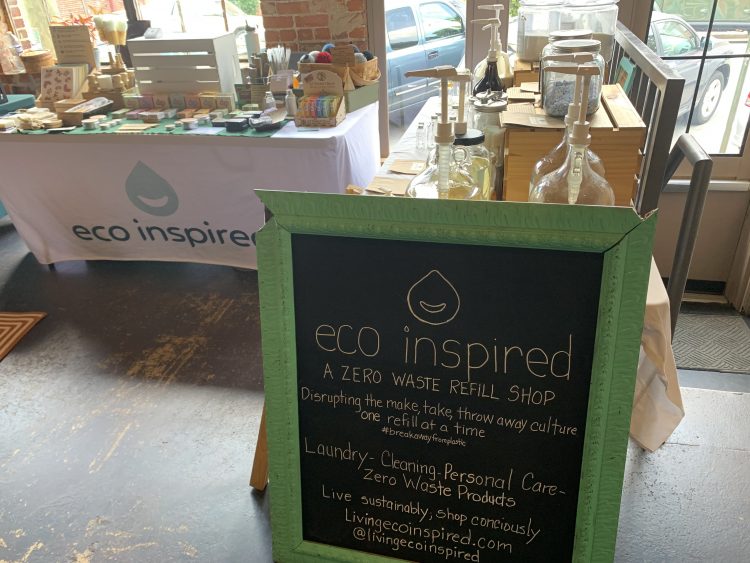
If someone wanted to replicate this business in their community, how would they go about it?
First, know your why for investing in the business and be aware that your heart needs to be completely in it. It’s not an easy road.
Also, reach out to your local small business association for help and connect with other zero waste shop owners. I’ve formed great friendships with zero waste shop owners all over the county, and we bounce ideas off each other constantly.
Do you have any favorite vendors or resources for products?
I love Scrap RVA, a creative reuse center where we get all the material to make our upcycled facial rounds, napkins, and utensil holders. I’m trying to incorporate more items into the shop that we make with upcycled material instead of buying new.
Also, I have been using shampoo and conditioner bars for years. We carry Dip shampoo and conditioner bars that are amazing. I try to support local, woman-owned businesses as much as I can. We gotta break the glass ceiling together.
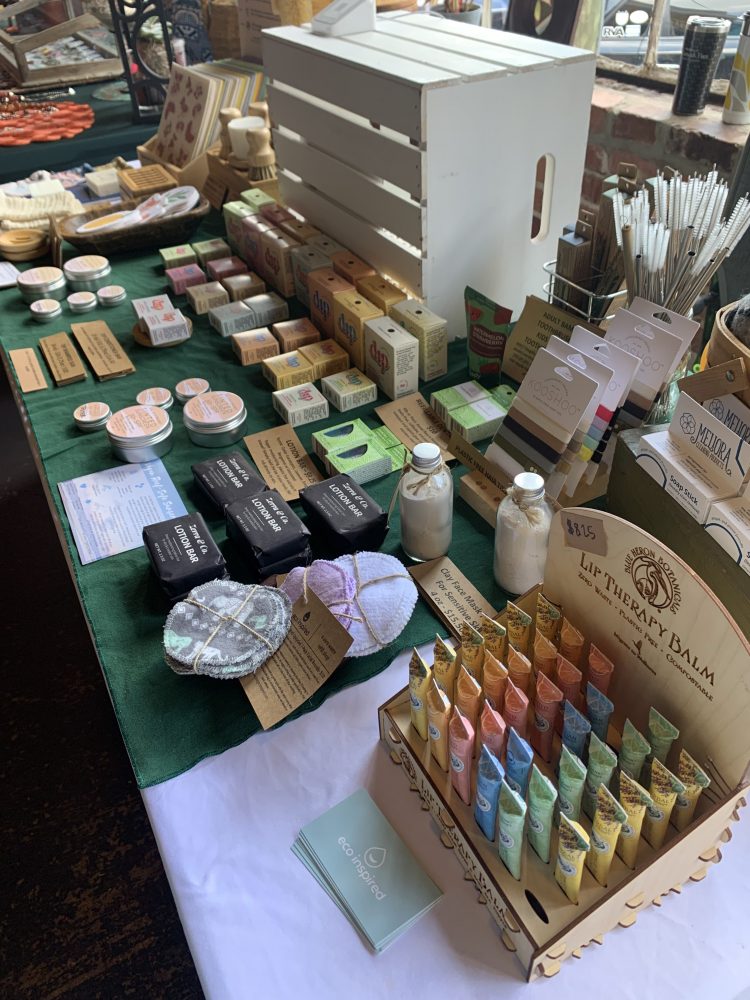
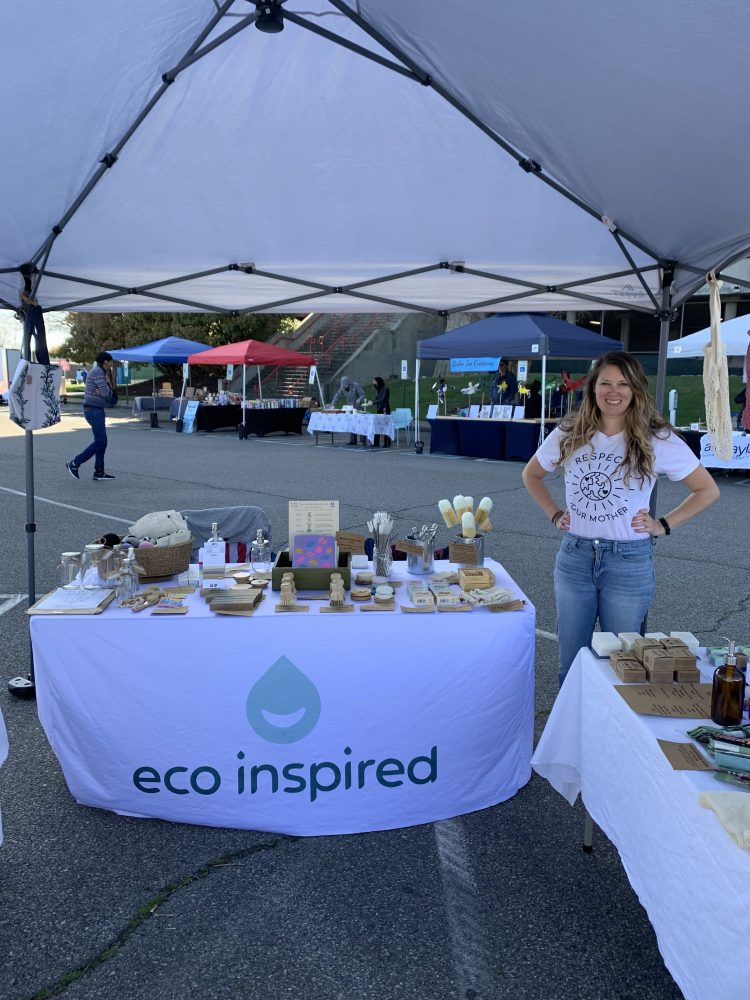
What do you think the future of reuse could look like? How do we get there?
We need legislative action to make significant changes. We have to ban single-use plastic and mandate deposit systems nationwide. We also need to hold corporations accountable to switch to a reuse system.
Until that time, we need to pressure big corporations at the root cause of the plastic pollution crisis to change their ways by not buying their products. That’s the only way they will be forced to make a change to reuse.
I also feel that we need to normalize reuse and reusable products. People leave their homes every day and make sure they have their keys, wallet, and phone. Take it a step further and make sure you have your reusable water bottle!
If you’re going to an outdoor event, bring your own bag. In the bag, have a container for leftover food and throw in some utensils. I know it sounds like a lot, but it becomes a habit. If you have kids, show them how to live less wastefully and it will be entirely normal for them as they become adults.
Where else can we find more information about you?
My website is livingecoinspired.com and my Instagram is @livingecoinspired. Check us out and give us a follow!
Thank you Eryn for being a part of this series and letting us be a fly on the wall of your business!
All photographs courtesy of Eco Inspired.
If you liked this interview, check out more of our Sustainability Side Hustle series.
About The Author

Rupa Singh
Rupa Singh is an ex-social entrepreneur and mom of three kids connecting them to their South Asian (Indian) roots + sustainability. Organizational wife to an altruistic architect. Advocate for low waste + thoughtful consumption. Continually unlearning + learning. Her bullet journal + audiobooks + morning ritual feed her spirit.

